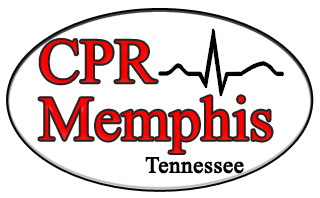Cardiopulmonary Resuscitation (CPR) stands as a critical skill that can mean the difference between life and death in emergencies. Picture a bustling workplace suddenly engulfed in chaos as a colleague collapses, unresponsive and without a pulse. In this dire moment, the importance of CPR training becomes vividly clear, offering the potential to save a life.
CPR training isn’t just a matter of ticking boxes on a safety checklist; it’s a cornerstone of workplace preparedness. In this article, we’ll delve into the multifaceted reasons why CPR training is indispensable in the workplace, examining how it increases survival rates, promotes safety, and empowers employees to take action in emergencies.
- Increases Survival Rates
The statistics are compelling: immediate CPR intervention can double or triple the likelihood of survival in cardiac emergencies. Time is of the essence when the heart stops beating, and CPR serves as a vital bridge until professional medical help arrives. Workplace CPR training ensures that employees are prepared to act swiftly and effectively in emergencies. From recognizing the signs of cardiac arrest to performing chest compressions and rescue breaths, trained individuals can make the critical difference between life and death.
2. Promotes a Safe Working Environment
Workplace safety protocols are incomplete without CPR training. By integrating CPR training into safety initiatives, businesses foster a culture of preparedness and care among employees, enhancing overall workplace safety.
Moreover, CPR training helps alleviate fear and anxiety in emergencies. Employees who are confident in their CPR skills are more likely to respond calmly and effectively, contributing to better outcomes in critical situations.
3. Legal Obligations and Compliance
Legal requirements mandate that businesses ensure workplace safety and emergency preparedness. CPR training may be a regulatory requirement in specific industries or enforced by occupational health and safety regulations. Failure to have CPR-trained staff can expose businesses to liability risks. In the absence of trained personnel, businesses may face legal consequences for negligence in the event of a cardiac emergency.
4. Minimizes Downtime and Losses
Cardiac emergencies can disrupt workplace productivity and lead to significant financial losses. Every minute counts in such situations and delays in administering CPR can have far-reaching consequences. CPR training serves as a proactive measure to mitigate risks and losses. By equipping employees with life-saving skills, businesses can minimize downtime, reduce medical expenses, and mitigate the potential for lawsuits.
5. Empower Employees
CPR training empowers employees by instilling confidence and competence in handling emergencies. Knowing how to perform CPR effectively gives individuals a sense of empowerment and preparedness. Beyond CPR, training educates employees on recognizing the signs of cardiac arrest and other medical emergencies, enabling them to respond promptly and appropriately in various situations.
6. Fosters Teamwork and Collaboration
During emergencies, coordinated efforts are essential for optimal outcomes. CPR training fosters teamwork and collaboration among employees, emphasizing the importance of working together to save lives. Additionally, CPR training can serve as a team-building activity, strengthening relationships and trust among colleagues. By practicing CPR skills together, employees develop a sense of camaraderie and mutual support.
7. Demonstrates Corporate Social Responsibility (CSR)
Prioritizing CPR training demonstrates corporate social responsibility (CSR) by fulfilling ethical obligations to employees’ health and safety. Companies that invest in CPR training show a commitment to protecting their workforce. Furthermore, CPR-trained employees contribute to the well-being of the broader community. By creating a pool of CPR-trained individuals, businesses play a role in improving community safety and resilience.
8. Adaptability to Various Workplace Settings
CPR training can be tailored to specific workplace environments, making it applicable across diverse industries and job roles. Whether in offices, factories, or retail establishments, CPR skills are universally valuable. Regular training updates are crucial to maintaining proficiency in CPR skills. Businesses should prioritize ongoing training to ensure employees remain prepared to respond to emergencies effectively.
In conclusion, the importance of CPR training in the workplace cannot be overstated. By equipping employees with the knowledge and skills to respond effectively in medical emergencies, companies can significantly enhance their ability to save lives and minimize the impact of sudden cardiac events. From reducing liability to fostering a culture of safety and preparedness, the benefits of implementing a comprehensive CPR training program are undeniable.
At CPR Memphis, we are committed to providing the highest-quality CPR certification courses to organizations throughout the region. Our American Heart Association-approved training site offers a range of certifications, including BLS for Healthcare Providers, ACLS, PALS, and CPR and First Aid, ensuring that your employees are equipped with the necessary skills to act quickly and decisively in the face of a medical crisis.
We encourage all businesses, regardless of size or industry, to prioritize workplace CPR training and make it an integral part of their employee safety and wellness initiatives. By doing so, you not only safeguard the well-being of your workforce but also contribute to the overall resilience and preparedness of your local community.
To schedule your CPR certification in Memphis, please visit our website at https://acls-bls-memphis.com/ or call us at (901) 438-4200. Together, let’s unlock the lifesaving potential of a CPR-trained workforce and make workplaces across Memphis and beyond safer for all.





